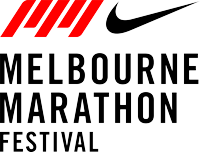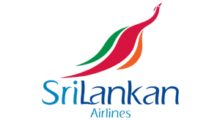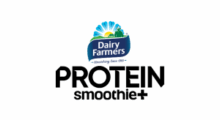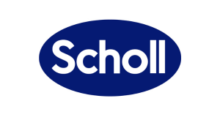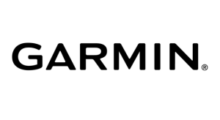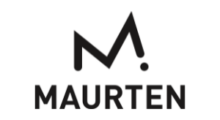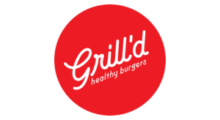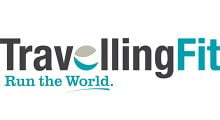

Navigating the dos and don’ts of nutrition can be difficult. Now add in considerations like exercise and fuelling for endurance events and you have yourself a puzzle.
When in doubt? Ask the experts!
Emily Commerford is an Accredited Practising Dietitian, Accredited Sports Dietitian & Accredited Nutritionist and a keen runner. In her own words, Emily is on a mission to take the fear and confusion out of eating!
We asked Emily Commerford to answer some of our nutrition FAQs, to help you decode your diet.
What is your best nutrition advice for someone just getting into running?
Keep it simple and try not to get bogged down with conflicting online information. Fuel your body regularly with wholesome foods including plenty of veggies, fresh fruit, good quality protein and complex carbohydrate each day. Everyone has different energy requirements, so make a point of listening to your body: if you’re hungry – eat! If you’re not getting hungry before your meals or snacks, you might be over-doing it. To work out your individual nutrition requirements and take your running to the next level, speak to your local endurance sports dietitian.
What should we be eating the day before a run?
You don’t need to change too much the day before a training run. Just keep to fuelling your body regularly with balanced meals and snacks. If you are planning a long run (>75mins) or a pre-breakfast run, increase the previous dinner’s cooked carbohydrate portion by 100-200g (½-1 cup of cooked rice, pasta, cous cous etc).
What should we be eating the morning of a run?
It really depends on the distance of the run and what time of the day you will be running. If you’re running in the morning before breakfast, make sure you have carbohydrate with dinner the night before (the quantity varies greatly from person to person, however it will be in the vicinity of ½ – 2 cups). If your morning run is longer than 60 minutes, it’s a good idea to have a light breakfast of easily digested carbohydrate before heading out the door.
If you’re having breakfast before a morning run, the meal should be high in carbohydrate. Protein, fat and fibre will slow the release of sugar (energy) into your blood and may cause gastro-intestinal discomfort, so we don’t want to overdo those elements. Ideally the small pre-run breakfast will be at least an hour before heading out. Some options include:
- 2 slices of toast, 2 crumpets or an English muffin with jam or honey;
- ½-1 cup of porridge;
- Cereal with milk & banana; or
- Smoothie with frozen berries or banana, 2tsp honey, ¼ cup oats & milk or water.
What roles do protein and carbohydrate play in running?
Muscle fibres are made of protein. When we use our muscles during exercise, we damage the working fibres. Post-exercise while we recover, these fibres are repaired and rebuilt stronger than they were before. For this process to occur optimally we must consume an adequate amount of high quality protein after exercise. Runners have higher protein requirements compared to the general population at 1.2-2.0g/kg/day compared to 0.75g/kg/day. This increased requirement is not only for muscle recovery but also to for building mitochondrial proteins and proteins involved in oxygen transport. Essentially, these proteins hep you to make energy more efficiently. Aim to spread your protein intake out evenly over the day including 15-25g of quality protein within 2 hours of finishing a run or within 30-60 minutes if you are running twice in the same day.
Options providing 20-25g protein:
- 100g lean beef or chicken
- 150g fish
- 3-4 Eggs
- 200g Greek or high protein yoghurt
- 500ml milk or 300ml high protein milk
- 170g firm tofu
- 200-400g cooked lentils/legumes
Think of carbohydrate as your petrol. Carbohydrate breaks down into sugar (glucose) in the body and this sugar is directly used to make energy. It is important to start a run with adequate energy and to include carbohydrate with your protein in the post-run meal to re-fill the tank and aid muscle recovery. Carbohydrate requirements fluctuate hugely from person to person, however as a general guide, aim to include around 1g/kg in the meals either side of a run.
Low carbohydrate diets have skyrocketed in fashion in recent times. They can be very tempting to try as they do elicit fast weight loss. However, carbohydrate is an essential fuel source while running and following a low carb diet will most likely impair your endurance.
Options providing approximately 50g of carbohydrate:
- ¾ cup oats made with milk + 1tsp honey
- 2 slices of multigrain toast with honey + 1 x banana
- ¾ cup cooked rice
- 1-1½ cups cooked pasta
- 3 medium-large potatoes or 1 small sweet potato
What is the recommended intake of water and how much should I increase if I have started running?
Staying hydrated is extremely important for many bodily processes and helps to reduce the risk of developing gastro-intestinal symptoms while running. Research has shown that losing more than 2% of your body weight through sweat can have a detrimental impact on your performance. As an example, a 60kg runner should not lose more than 1.2kg while running.
To estimate your sweat rate, weigh yourself before and after a run. 1kg weight loss approximately correlates to 1L of sweat loss. Work out your hourly sweat rate (weight loss/length of run in hours) and aim to replace about 80% of that loss per hour of your race. It’s helpful to do this activity in different weather conditions to get to know your sweat rate in different environments – especially if your race conditions are quite different to the conditions you train in.
What should we be adding to our diet in the weeks before a big run?
In the weeks leading up to a race, keep your diet as balanced as possible with adequate energy to fuel your runs. Stay well hydrated and if you drink alcohol, it’s helpful to ease off for a month or so in the lead up to a big run.
Contracting a virus in the weeks leading up to a big run can significantly impact your preparation, and there is nothing worse than training hard for months then waking up sick on race day! Studies have shown that supplementing with 2-8g of vitamin C per day may help prevent the common cold in physically active people or reduce the severity and duration of a cold. Therefore, it is worthwhile supplementing with at least 2g of vitamin C while training for a marathon, in addition to having plenty of fruit and veg every day.
Maximise your muscle carbohydrate (glycogen) stores by carb-loading for 2-3 days before the race. This will reduce your risk of hitting the wall. Carbohydrates break down into sugar (glucose) in your blood which we directly use to produce energy. We can only store a finite amount of sugar in our muscles and if these stores run out, you will experience the feeling of running into that dreaded brick wall which will slow you down significantly.
Carb-loading is not a free-for-all food party (although it can be very fun!). To maximise your glycogen stores, you need to increase your carbohydrate intake to 5-7g/kg of body weight/day for 2-3 days before the race. For example, a 50kg runner would aim to consume a minimum of 275g (5×50) of carbohydrate for 2-3 days prior to a race. It is important to increase ONLY your carbohydrate intake while maintaining a moderate intake of protein. Limit your fat and fibre intake to prevent gastro-intestinal issues and early satiety. A big greasy burger and chips is not an ideal option!
Appropriate high carbohydrate foods and drinks include:
- Sports drinks
- Lollies
- Light dry biscuits (i.e. Cruskits, Premiums, Rice or Corn Thins)
- 100g-200g cooked pasta with 95g tin tuna & spinach (a little oil and cheese only)
- 1 cup cooked rice + 100g cooked meat or fish
- Tinned peaches in mango juice
- Low fat yoghurt with honey
- Smoothie: 200ml milk + 1 large ripe banana + 2-3tsp honey
**note that easily digested sugars such as lollies and sports drinks are not recommended on a regular basis however they are a wonderful option for optimising glycogen stores without adding excess calories, fibre and fat while carb-loading. You will use this sugar up on race day!
Need help with your nutrition? Emily is here to help! Contact Melbourne Nutrition Services to arrange an appointment with Emily at www.melbournenutrition.com.au
Melbourne Nutrition Services is a nutrition consulting business based in Melbourne and surrounding suburbs, founded by Accredited Practising Dietitian, Emily Commerford. Our mission is to help people nurture a positive relationship with both their bodies and the foods they love. We aim to work with our clients to help them achieve their individual goals and to take the pain, confusion and stress out of healthy eating.
